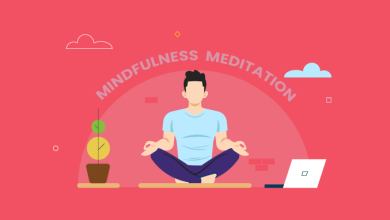Unlocking the Puzzle: Mental Health and Counseling Through the Lens of Games

In the labyrinthine landscape of mental health, counselling acts as both guide and compass, navigating individuals through the intricate challenges that often feel as complex as a cryptic crossword or as uncertain as a game of chance. Just as in these games, where strategy, patience, and resilience are key, so too in the realm of mental well-being do individuals engage in a nuanced dance with their own thoughts and emotions. Let’s delve into how the principles of various games—crosswords, sudoku, and even aspects of gambling—can shed light on the journey of mental health and the role of counseling in this narrative.
The Crossword Puzzle of Self-Discovery
Imagine tackling a challenging crossword puzzle. At first glance, it may seem daunting—filled with obscure clues that require careful consideration and perhaps a bit of outside knowledge. Similarly, our journey through mental health can feel overwhelming, with each clue representing a facet of our psyche waiting to be understood.
Counseling, in this context, acts as the trusted dictionary and thesaurus, helping to unravel the complexities hidden within each clue. A skilled counselor provides guidance akin to a seasoned crossword solver, offering insights and perspectives that illuminate the path forward. Through reflective questioning and active listening, counselors assist individuals in piecing together their personal puzzle—revealing patterns, making connections, and ultimately fostering a deeper understanding of oneself.
Just as solving a crossword requires patience and persistence, progress in mental health often hinges on commitment to the process. Each session can be likened to filling in answers on the puzzle grid—sometimes straightforward, sometimes requiring creative thinking, but always contributing to the larger picture of personal growth and insight.
Sudoku: Finding Balance and Resilience
Sudoku, with its structured grid and logical rules, offers a different metaphor for the mental health journey. In this game, success is not only about filling in numbers but also about maintaining balance and adaptability in the face of challenges.
Similarly, individuals navigating mental health concerns often seek to restore balance in their lives. Counseling provides a supportive framework where individuals can explore strategies to manage stress, regulate emotions, and cultivate resilience. Just as a Sudoku player learns from each completed puzzle, individuals in counseling develop skills and coping mechanisms that enhance their ability to navigate life’s twists and turns.
The iterative process of solving Sudoku puzzles mirrors the ongoing work of self-care and personal development. Each session with a counselor can be seen as an opportunity to refine strategies, learn from setbacks, and strengthen mental resilience—an essential component of maintaining overall well-being.
The Gambit of Risk and Reward
While often controversial in the context of mental health, aspects of gambling can offer insights into decision-making and risk assessment. In gambling, the allure of potential rewards can overshadow the inherent risks—a dynamic mirrored in everyday choices that impact mental health.
Counseling plays a crucial role in helping individuals evaluate these choices with clarity and perspective. By exploring underlying motivations and thought patterns, counselors assist clients in making informed decisions that prioritize long-term well-being over immediate gratification. This process fosters self-awareness and empowers individuals to recognize and mitigate risky behaviors that may jeopardize their mental health.
Furthermore, the principles of chance and uncertainty in gambling underscore the unpredictability of life itself. Through counseling, individuals develop adaptive strategies to cope with uncertainty, manage stressors, and cultivate a sense of agency in shaping their own narrative. Just as a skilled gambler assesses odds and adjusts strategies, individuals engaged in counseling gain insights that enable them to navigate life’s uncertainties with greater confidence and resilience.
The Role of Counseling: A Game-Changing Strategy
Ultimately, counseling serves as a transformative strategy in the realm of mental health, offering a structured approach to address challenges and promote personal growth. Like games that engage the mind and encourage strategic thinking, counseling encourages individuals to explore their experiences, confront obstacles, and discover new perspectives.
The therapeutic alliance between counselor and client mirrors the collaboration and teamwork found in multiplayer games. Through empathy, validation, and trust, counselors create a safe space where individuals can explore vulnerabilities, express emotions, and work towards positive change. This supportive relationship fosters healing and empowerment, empowering individuals to rewrite their narratives and embrace their strengths.
In conclusion, the parallels between games and the journey of mental health underscore the multidimensional nature of human experience. Counseling, like a skilled player navigating a game, offers guidance, insight, and empowerment in the pursuit of mental well-being. By embracing the principles of strategy, resilience, and self-discovery inherent in games like crosswords, sudoku, and even aspects of gambling, individuals can embark on a transformative journey towards holistic health and personal fulfillment.
As we continue to navigate the complexities of mental health, let us recognize the profound impact of counseling—a beacon of hope and support in unlocking the potential within each of us. Just as every game has its challenges and victories, so too does the journey towards mental well-being unfold with each session, each insight, and each step forward.



